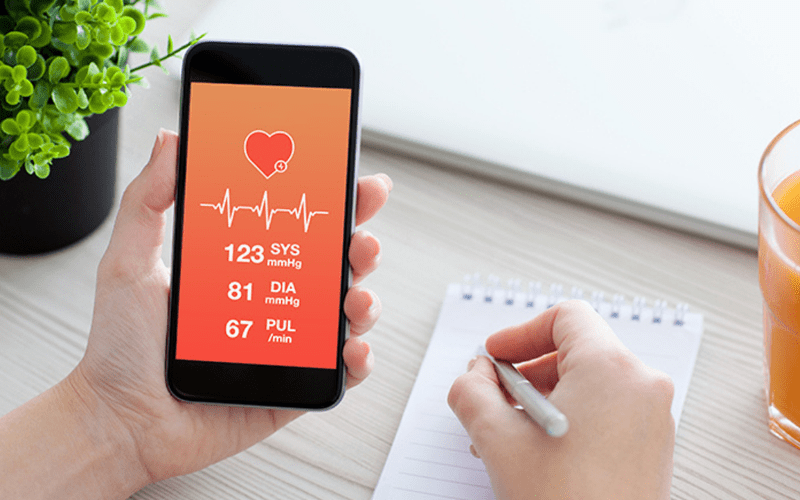
How Can Healthcare Mobile Apps Boost Healthcare Clinic Revenue?
Posted on February 8, 2024
Content Details
- Introduction
- Defining a healthcare mobile app
- Types of healthcare apps
- How does a healthcare mobile app benefit you?
- How can a mobile app enhance your revenue?
- Conclusion
Introduction
With the increased demand and adoption of smartphones and the need for convenient resources, healthcare mobile applications have been developed for individuals to easily access healthcare services and information. Lengthy phone calls for appointments and crowded waiting rooms were a waste of time. With the introduction of these healthcare mobile apps, individuals can manage their health records, have easy access to medical reports and other resources. They can even virtually consult medical professionals from the comfort of their homes.
Healthcare mobile apps have become a significant platform for collaboration and communication, lab reports, home delivery of medicines, and other nursing facilities at your doorstep. Developers of healthcare mobile apps must adhere to strict data protection and guidelines to build trust and secure their personal health data.
With additional features in these apps, an individual can track their health progress by monitoring fitness tracking, mindfulness yoga, exercise, setting goals, etc. In this blog, we will discuss the various aspects, benefits, and different types of healthcare apps.
Defining a healthcare mobile app
A healthcare mobile app refers to a software application created to be used on mobile devices, such as laptops and tablets, that provides various resources and services related to healthcare. These apps are helpful and have a wide range of functionalities, such as access to medical records, prescription management, virtual consultation, health education, fitness tracking, appointment scheduling, and so on. The aim of healthcare mobile apps is to provide better and more accessible services to their users and provide convenient tools for monitoring and measuring their health.
Types of healthcare apps
- Monitoring and diagnostic apps: These apps use devices and sensors to monitor and track the health conditions of patients, such as heart rate, diabetes, thyroid, sleep pattern, and so on.
- Adherence Apps and Medication Management: These apps are built to help the users control and manage their medication reminders, medication schedules, and other essential information about medications.
- Education apps and medical references: These apps provide various decision-making tools, educational information, and medical references for students and healthcare professionals.
- Wellness and Fitness Apps: These are created with the aim of providing nutrition planning, fitness tracking, mental health support or issues, and stress management to manage the overall well-being of an individual.
- Telemedicine Apps and Virtual Consultation: Their aim is to provide online consultations and allow patients to connect virtually with a healthcare professional about the cause of their illness and treatment without going to a clinic or hospital.
How does a healthcare mobile app benefit you?
Healthcare is a diverse and essential field where the staff has to stay on its toes all the time. A mobile app can automate most tasks while also offering many other benefits:
- Better health information management: Healthcare apps provide a secure platform for managing health information, including lab reports, patient histories, previous doctors, and medical records, allowing smooth sharing of information between the patient and the doctor.
- Cost-Effective Healthcare Solutions: These apps provide cost-effective healthcare services by providing affordable options for patients, such as offers on lab tests, free consultations,discounts on medicines, and so on.
How can a mobile app enhance your revenue?
A mobile app helps you increase your revenue in many ways.
- Partnerships and sponsorships: contributing with businesses and brands linked to your app’s niche can lead to product placements, sponsored content, and partnerships. This can give rise to revenue through branded features, exclusive deals, and sponsored posts for your app users.
- 2. Transactions and in-app services If a healthcare mobile app provides on-demand services, including the delivery of medicines, lab reports, and other medical essentials, one can earn revenue by fixing a transaction fee or commission for every service or sale provided through the app.
- Advertising combining advertisements within your mobile app can become a source of revenue. By showcasing different types of ads, such as native ads, banner ads, and interstitial ads, and through impressions or clicks, you can earn revenue. Also, it is essential to maintain a balance between user experience and ad placements to manage user engagement.
- In-app purchases By providing additional features, virtual goods, and premium content within your app, you can generate revenue through in-app purchases. This process is mainly used in content-focused apps and productivity apps.
Conclusion
Healthcare mobile apps have come so far that the way we use and manage our health has changed.
These apps help users manage their well-being by providing easy and smooth access to healthcare facilities and services, virtual consultations, and personalized health tracking. With different features like medication facilities, wellness resources, fitness tracking, and other such aspects, we are improving the traditional healthcare experience and engaging a wide range of audiences.
As technology is expanding rapidly, these apps have the power to develop the healthcare industry, empowering individuals to make decisions and participate in the healthcare journey. The growth of healthcare mobile apps is not just a trend; it leads to a healthier and brighter future for all.
